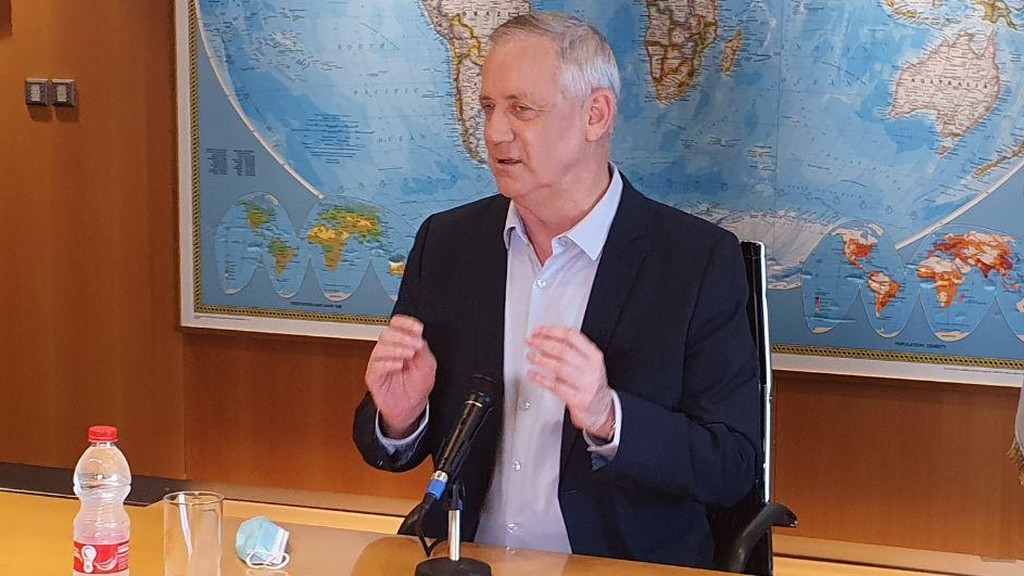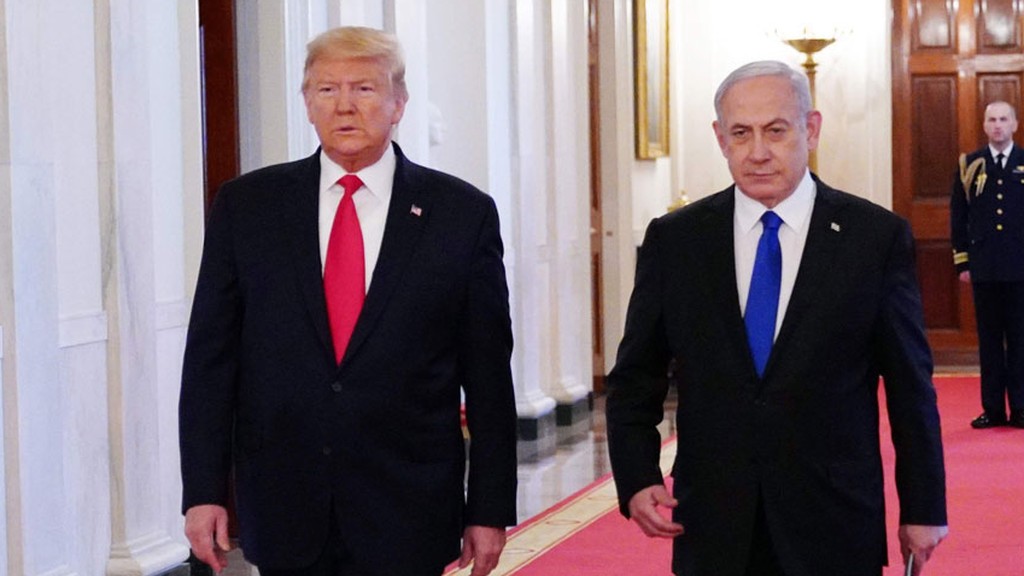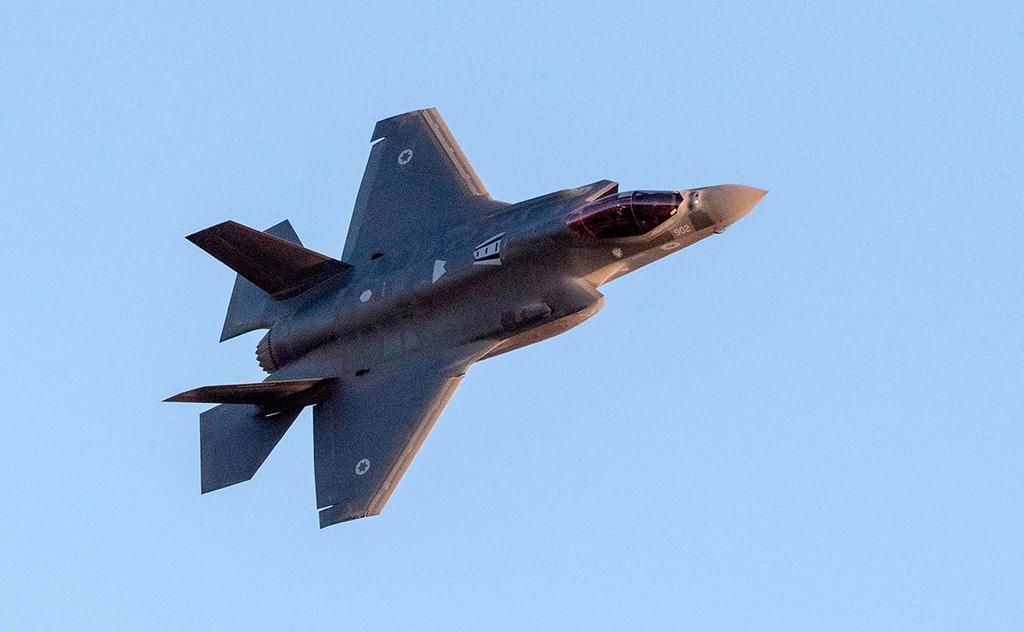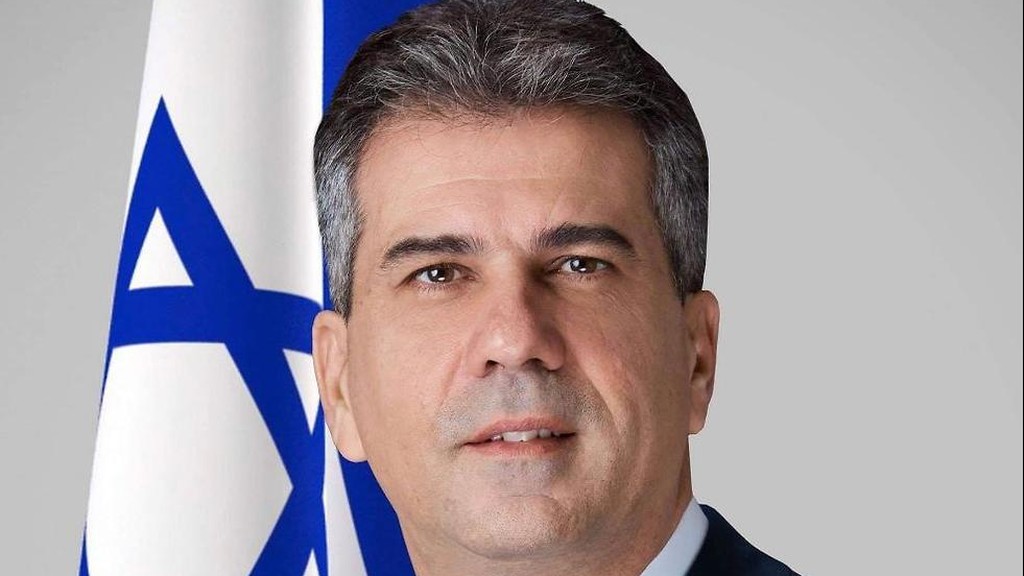Getting your Trinity Audio player ready...
Prime Minister Benjamin Netanyahu on Tuesday denied that there was a secret clause in the Israel-UAE agreement to open diplomatic ties that would see the U.S. sell the Gulf state aircraft that could end Israel's military edge in the region.
The comments came after Ynet reported the existence of the clause in the agreement announced last week, which allows the U.S. to provide the UAE with F-35 fighter jets and advanced drones.
"The peace agreement with the UAE does not include any clause of this kind, and the U.S. has made clear to Israel that it will always ensure that Israel has the qualitative advantage," the Prime Minister's Office said in a statement tweeted by Netanyahu.
The prime minister also branded the Ynet report "completely fake news."
The PMO statement said that Netanyahu was adamant in upholding Israel's long-standing opposition to the sale of weapons to any Mideast nation that would shift the balance of military power, regardless of peace agreements with Jerusalem.
"From the outset, the prime minister opposed the sale of F-35s and other advanced weapons to any countries in the Middle East, including Arab countries making peace with the State of Israel," the statement said.
"The prime minister has repeatedly expressed this position to the U.S. administration and that has not changed," the PMO said.
The statement acknowledged, however, that the issue had been raised with the Trump administration weeks ago.
"In the prime minister's conversation with U.S. Ambassador [David] Friedman on July 7, the prime minister explicitly expressed Israel's opposition to the sale of F-35 aircraft and other advanced weapons to any country in the Middle East, including as part of any peace agreements," it said.
"On July 8, the prime minister sent a letter to Secretary of State [Mike] Pompeo, through Ambassador Friedman, in which he clarified that Israel's position was also unchanged following the achievement of peace agreements."
According to the PMO, "On August 3, under the direction of the prime minister, Israeli Ambassador to Washington Ron Dermer met with Secretary of State Pompeo and explicitly reiterated Israel's opposition to the sale of F-35s and other advanced weapons systems to any countries in the Middle East."
The PMO statement also said that Defense Minister Benny Ganz had been "updated on this position on July 29."
But Gantz and Foreign Minister Gabi Ashkenazi were only updated on the existence of the agreement with the UAE once it had been signed, a fact that both Netanyahu and his defense minister have confirmed.
4 View gallery


Defense Minister Benny Gantz speaking Tuesday at the Defense Ministry compound in Tel Aviv
(Photo: Yoav Zitun)
Gantz said Tuesday that he was unaware of the details of the agreement until it was publicly announced and decried any move to end Israel's military advantage in the region.
"Israel's resilience depends on its air superiority in the Middle East," said Gantz as he returned to work following back surgery. Both he and Ashkenazi previously served as IDF chief of staff under Netanyahu.
"The agreement with the Emirates is an important one and has the potential to lead to very desirable regional developments for the State of Israel," Gantz said.
He added: "It is important to understand that Israel's resilience depends on two efforts - the pursuit of peace and an uncompromising commitment to security supremacy in every part of the Middle East."
"I intend to support this important effort along with other government ministries, and to do so while guaranteeing Israel's security considerations and interests."
The U.S. Embassy in Jerusalem had no immediate comment on the report.
Likud's Intelligence Minister Eli Cohen also said Tuesday that he knew of no change to Israel's policy of opposing U.S. sales of advanced weaponry of this kind to Arab states.
Cohen said the security cabinet had not held any discussion on changes to Israel's policy of maintaining its security advantage and that Israel had not agreed to any changes by the United States.
"I know of no change to the position and the policy of the State of Israel," he told public broadcaster Kan. "I am telling you that Israel has not given its consent to coming along and changing the arrangement."
In the wake of the 1973 Yom Kippur War, the United States gave Israel assurances that it would be able to maintain military superiority in the region and that the sale of advanced weapon systems to Middle Eastern countries will be subjected to Israeli discretion.
These assurances had been observed ever since, until Trump had publicly stated his intention to sell strategic weapons to the UAE and Saudi Arabia, but was blocked by Congress after passing an arms embargo last year.




